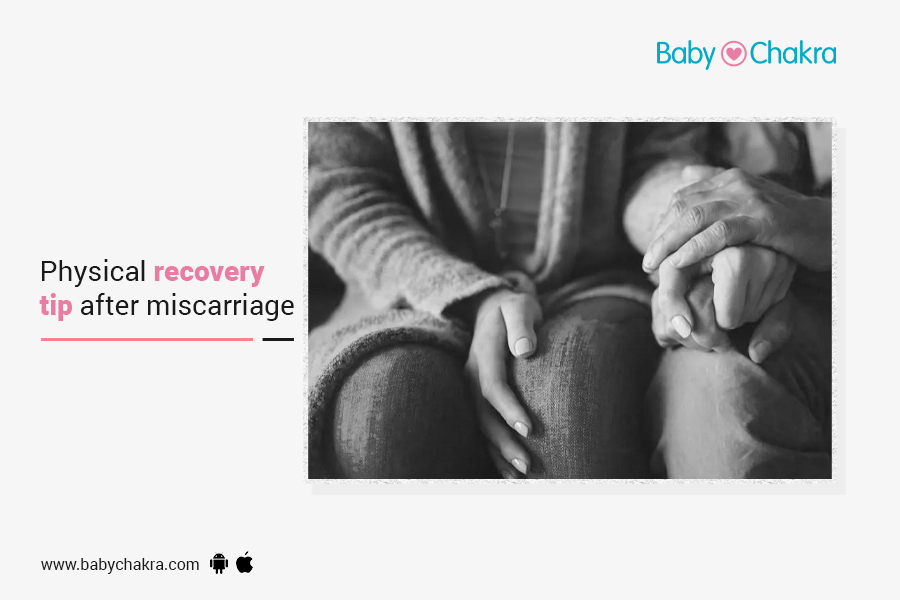
Physical Recovery Tip After Miscarriage
28 Nov 2022 | 2 min Read
Seema Bhatia
Author | 29 Articles
Miscarriage can be draining for a woman physically as well as emotionally. Excess blood loss, severe pain, cramps, emotional damage caused by pregnancy loss need proper healing in order to get back to the routine. Though the recovery duration may vary from person to person there are a few tips to follow when it comes to physical recovery.
· Starting with the most important thing to do is to go for regular check-ups and follow appropriate treatment for internal healing, manage pain with appropriate medications, and prevent any kind of probable infection.
· Take ample rest that supports your physical as well as emotional healing.
· Monitor your body temperature periodically. A rise in body temperature (above 99 7°F, could be indicative of an infection.
· Managing body pain/aches by using hot or cold compressions.
· Avoid having intercourse/ sex at least for about 2-3 weeks after miscarriage to avoid delayed healing, risk of infection, and bleeding caused by doing so.
· Adopt healthy eating. Include foods that support your physical and emotional healing. Adding foods that are rich in proteins, fibers, nutrients, essential vitamins, healthy fats, etc supports your healing process.
· Keep a good fluid intake. Drink 7-8 glasses of water in the day to stay hydrated and lower the risk of urinary tract infection too. Fresh fruit juices and fruits with high water also support hydration. Avoid caffeinated drinks and alcohol as it can slow the recovery process.
If you like the article, do rate us too on the google app store by using this link
A


Related Topics for you
Suggestions offered by doctors on BabyChakra are of advisory nature i.e., for educational and informational purposes only. Content posted on, created for, or compiled by BabyChakra is not intended or designed to replace your doctor's independent judgment about any symptom, condition, or the appropriateness or risks of a procedure or treatment for a given person.
